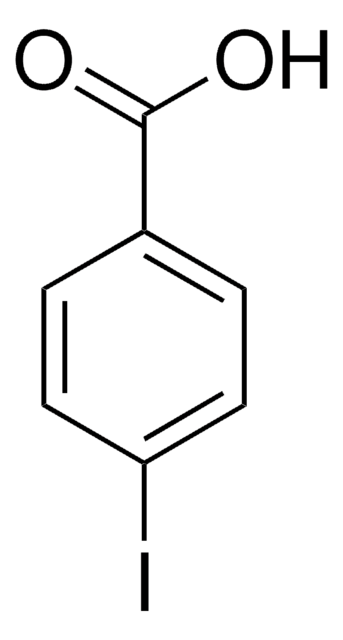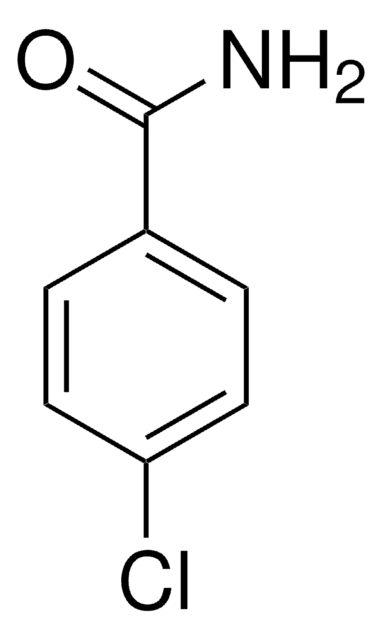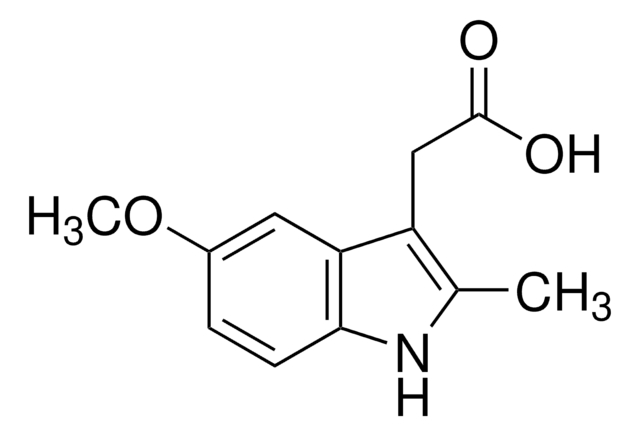135585
4-Chlorobenzoic acid
99%
Synonym(s):
4-CBA, p-Chlorobenzoic acid
About This Item
Recommended Products
Assay
99%
form
powder
mp
238-241 °C (lit.)
solubility
methanol: soluble 1%, clear, colorless to faintly yellow
SMILES string
OC(=O)c1ccc(Cl)cc1
InChI
1S/C7H5ClO2/c8-6-3-1-5(2-4-6)7(9)10/h1-4H,(H,9,10)
InChI key
XRHGYUZYPHTUJZ-UHFFFAOYSA-N
Looking for similar products? Visit Product Comparison Guide
Related Categories
General description
Application
- As a ligand to synthesize luminescent lanthanide complexes for bio-labeling or fiber communication applications.
- To prepare organotin(IV) chlorobenzoates exhibiting anticorrosion properties.
- As a ligand to synthesize di-n-butyl(4-chlorobenzoxy)(4-chlorobenzohydroxamato)tin(IV).
Signal Word
Warning
Hazard Statements
Precautionary Statements
Hazard Classifications
Acute Tox. 4 Oral
Storage Class Code
11 - Combustible Solids
WGK
WGK 2
Flash Point(F)
460.4 °F - closed cup
Flash Point(C)
238 °C - closed cup
Personal Protective Equipment
Certificates of Analysis (COA)
Search for Certificates of Analysis (COA) by entering the products Lot/Batch Number. Lot and Batch Numbers can be found on a product’s label following the words ‘Lot’ or ‘Batch’.
Already Own This Product?
Find documentation for the products that you have recently purchased in the Document Library.
Customers Also Viewed
Our team of scientists has experience in all areas of research including Life Science, Material Science, Chemical Synthesis, Chromatography, Analytical and many others.
Contact Technical Service











